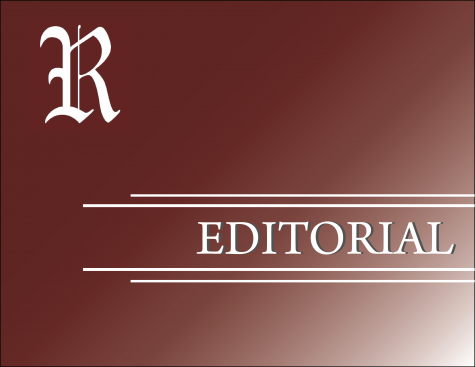Editorial: Fordham Science Program Fails to Deliver
October 21, 2015

By The Editorial Board
It comes as little surprise to students in Fordham’s science programs to hear that our university is failing to deliver. While millions of dollars have been funneled into a complete overhaul of Fordham’s Gabelli School of Business and its majors, students in Fordham College Rose Hill and especially those with science majors are feeling serious neglect.
Ultimately, Fordham is a business, and improving science labs and equipment takes serious capital that the university sadly may not have. That being said, the ever-changing professional world is demanding more people that have experience in the hard sciences. There is a higher need for engineers (Fordham does not even offer a true engineering degree) and researchers in medicine and technology with which Fordham has failed to keep up.
With each incoming class larger than the last, more students are declaring science-based majors, but our university has not responded effectively. Top universities place a great emphasis and focus on the sciences. If Fordham sincerely strives to become a top university, a greater emphasis needs to be placed on research and preparing its students to apply for professional programs.
A positive, recent development is the addition of the Associate Dean for STEM (Science, Technology, Engineering and Mathematics) and Pre-Health Education, Carla Romney, who has implemented a science newsletter sent to pre-health and STEM students highlighting opportunities for research and education. While this a welcomed benefit, it comes far too late for many current students and recent graduates, and is simply not enough. While pre-health students also have Assistant Dean for Pre-Health Advising Ellen Watts, the hundreds of students in each class that she serves are far too many to be handled effectively by a team this small. The fields of science and medicine are extremely competitive and without a strong program and enough dedicated faculty, how can a student be expected to succeed?
While Fordham has consistently compared itself to schools like Boston University (ranked 41 among national universities in 2015 according to U.S. News World Report; Fordham ranks 66), BU’s graduate biological science program ranks at 85 nationally, while Fordham’s ranks at an appalling 209.
Fordham has 10 science-based majors, while fellow NYC institution New York University boasts over 25 and has separate colleges for engineering, dentistry and nursing in addition to its college of arts and sciences. Boston University offers over 40 science majors. Our limited offering in terms of majors and poor rankings make it clear the science program has been a major oversight for decades. A university’s science and research should bring pride, not shame, but with aging and inadequate facilities and poor funding, our university’s professors are unable to conduct research of any major significance.
A school in such a fortunate location as ours should be exploiting the dozens of first-rate research institutions and hospitals (there are over 25 hospitals within a twenty-mile radius) around us instead of ignoring them.
Fordham also needs to place a greater emphasis in publishing scientific research if it hopes to attract strong, interested science students. This comes from improving its program, which ultimately requires significant funding.
In the meantime, Fordham needs to focus on developing relationships with professional schools and research institutions since Fordham itself fails to offer this. With the appointment of Maura Mast, dean of Fordham College at Rose Hill, who comes with a strong science background, we at The Fordham Ram hope to see results.



Ummm regarding the business school, it is helping fund most areas of the university as they are skimming it. At the graduate level of business the university has been grossly depleting net tuition revenue for decades. The GSB grad program has 11 Master of Science programs loaded with full paying Chinese students, GSB graduate school is a massive program. They are not getting their monies worth by any stretch given what is taking place in terms of revenue transferring to other programs. Fordham has woeful planning and operates as a 95% tuition revenue based university. As well, Father McShane’s constant Jesuit greatness theme, played out almost thru the speakers in the homes and classroom like N Korea or something turns off potential candidates. University is stuck in the past, McShane should step down as he is all about liberal arts and of course Jesuit preaching.
In order for the business school to be competitive it needs facilities ! It has also been paying the freight and then some back to Rose Hill to offset losses, the football team to whatever. It now longer is a competitive program given the financial draining that has occurred under President McShane. Guessing that they are worried about losing a cash cow given it’s current state. Science however needs new facilities too, problem is Fordham has no money and is losing money at the graduate level. Law is a problem as they have cut back enrolment to save face in the rankings, law school overall is a huge problem nationwide. Fordham timed the opening of their new law building perfectly to coincide with a massive downturn in law school admissions. In my opinion Fordham will fall across the board in all rankings as it no longer can raise undergraduate tuition. The value of a Fordham degree is depleting.